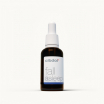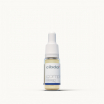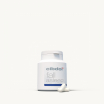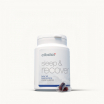Does Fish Oil Help You Sleep?
Published:
Getting enough high-quality sleep is incredibly important for your health and wellbeing. Unfortunately, many people struggle to fall asleep and stay asleep throughout the night. This can leave you feeling exhausted the next day. There are many potential causes of poor sleep, ranging from stress and anxiety to underlying health conditions. Finding natural solutions to improve sleep is an appealing option for many people. This has led to a lot of interest around whether taking fish oil can help you sleep better.
Contents:

What is Fish Oil?
Fish oil is a dietary supplement that contains the omega-3 fatty acids eicosapentaenoic acid (EPA) and docosahexaenoic acid (DHA). It comes from the tissues of oily fish like salmon, mackerel, sardines, anchovies and herring. These fatty acids play important roles in the body and can provide a wide range of health benefits. Fish oil supplements are popular, with sales expected to exceed $4 billion annually by 2025. But could they also improve sleep? Let’s take a look at what the current research says.
How Fish Oil May Help With Sleep
There are several potential ways fish oil could help improve sleep:
1. Reduces Inflammation
Chronic inflammation is linked to poor sleep quality. The omega-3s in fish oil have strong anti-inflammatory properties. By reducing inflammation, fish oil may help you fall asleep faster and sleep more soundly.
2. Lowers Cortisol
Cortisol is a hormone released in response to stress. High cortisol levels at night can make it difficult to fall and stay asleep. Fish oil lowers cortisol secretion, which may aid sleep.
3. Increases Serotonin
Serotonin is both a hormone and neurotransmitter that regulates sleep. Low levels are linked to sleep disorders. EPA and DHA help boost serotonin levels, which may improve sleep.
4. Regulates Circadian Rhythm
Your circadian rhythm is your 24-hour internal body clock that regulates sleep. Omega-3s help regulate circadian rhythms, which may improve sleep patterns.
5. Improves Depression
Depression is strongly linked to insomnia and other sleep problems. Omega-3s have mood-boosting properties and may help relieve depressive symptoms, reducing sleep disturbances.
6. Lowers Blood Pressure
High blood pressure can make it harder to fall and stay asleep. The omega-3s in fish oil help lower blood pressure, which may aid sleep.
Scientific Research on Fish Oil and Sleep
While the potential mechanisms make sense in theory, what does the actual scientific research say? There have been several studies examining the effects of fish oil on sleep in recent years:
Improves Sleep in Infants
Multiple studies have found fish oil improves sleep in infants. One study gave babies a DHA supplement or placebo for their first six months. Infants who received DHA slept better and woke up less throughout the night.
Reduces Sleep Disturbances and Apnea
A study in older men at risk for heart disease found fish oil for 6 months reduced sleep disturbances and sleep apnea episodes. The researchers attributed this to fish oil’s anti-inflammatory effects.
Shortens Time to Fall Asleep
A 2011 study found healthy adults taking fish oil capsules fell asleep about 2.2 minutes faster than those taking a placebo. They also reported better overall sleep quality.
Improves Sleep in PTSD Sufferers
Researchers suggest omega-3s may improve sleep in those suffering from PTSD. One study found a combination of fish oil and psychotherapy significantly improved both PTSD symptoms and sleep quality.
No Improvement in General Population
However, not all studies have found positive effects. A recent 2021 meta-analysis looked at 18 randomized controlled trials on fish oil and sleep. Overall, fish oil did not improve sleep in the general population. The researchers concluded more studies are needed.
Dosage to Improve Sleep
If you want to try fish oil to improve your sleep, what dosage should you take? Most studies finding benefits for sleep used doses of 1–2 grams of combined EPA/DHA per day. This is also the typical dosage recommended on fish oil supplements.
Look for a supplement with at least 500-1000 mg of combined EPA/DHA per capsule. Take 1–2 capsules daily with food to get the full benefits for sleep. Make sure to choose a quality fish oil supplement that has been independently tested for purity and freshness.
How Long Until It Works?
Don’t expect immediate results if you start taking fish oil before bed. The studies showing improved sleep typically supplemented participants’ diets with fish oil for several weeks or months to allow levels to build up in the body. Most researchers suggest allowing at least 2–3 months when taking fish oil regularly to experience the full effects on sleep. Be patient and consistent with your dosage and you’re more likely to notice benefits.
Safety and Side Effects
Fish oil is generally considered safe, especially when taken in normal supplemental doses. The most common side effects are minor and include:
- Fishy aftertaste
- Fishy breath
- Nausea or upset stomach
- Diarrhea
To reduce side effects, take fish oil capsules with meals. Decreasing your dosage can also help until your body adjusts. Rarely, fish oil can cause bleeding problems in people taking blood-thinning medications. Check with your doctor first if you take blood thinners like coumadin.
Otherwise, fish oil has a very good safety profile. Some studies have safely used doses of up to 5 grams per day, far exceeding typical supplement dosages.
Other Tips for Improving Sleep
While fish oil may help, it likely won’t solve all your sleep problems on its own. Here are some other tips for improving sleep naturally:
- Keep a consistent sleep schedule: Go to bed and wake up at the same time daily, even weekends. This reinforces your circadian rhythm.
- Limit blue light exposure: Avoid screens for 1-2 hours before bedtime. Blue light hampers melatonin secretion.
- Create an optimal sleep environment: Keep your room cool, dark and quiet. Consider blackout curtains and a white noise machine.
- Avoid stimulants: Don’t consume caffeine, nicotine or other stimulants several hours before bedtime.
- Exercise regularly: Moderate activity during the day can deepen sleep at night. Avoid vigorous exercise close to bedtime.
- Reduce stress: Try relaxing activities before bed like reading, meditation or gentle yoga. Chronic stress disrupts sleep.
- Consult your doctor: If poor sleep persists, speak with your healthcare provider. They can check for underlying issues.
The Bottom Line
Some scientific studies suggest fish oil may modestly improve certain aspects of sleep in some groups of people. The omega-3 fatty acids appear to work primarily by reducing inflammation, lowering cortisol and boosting serotonin. However, more research is still needed, as not all studies have shown clear benefits for sleep. Taking a fish oil supplement for 2-3 months at a dosage of 1-2 grams of combined EPA/DHA daily is reasonable to try if you struggle with poor sleep. But make sure to also practice good sleep habits and consult your doctor if problems persist. While not a miracle cure, fish oil is generally safe and may be a useful addition when taken as part of an overall healthy lifestyle.
Does Fish Oil Help You Sleep? Conclusion
Getting adequate deep sleep is vital for both short-term wellbeing and long-term health. Many people look to natural remedies like fish oil to address persistent sleep problems. Current research on fish oil and sleep has shown some promising results, especially in specific groups like infants, those with sleep apnea or PTSD patients. However, more studies are still needed to determine its effectiveness for improving sleep in the general population. Taking a fish oil supplement may offer some modest benefits for those struggling with sleep by reducing inflammation and balancing hormones that regulate sleep and mood. When combined with overall good sleep hygiene practices, fish oil could be a helpful complement for some people as part of an integrated approach to improving sleep quality and duration.




















